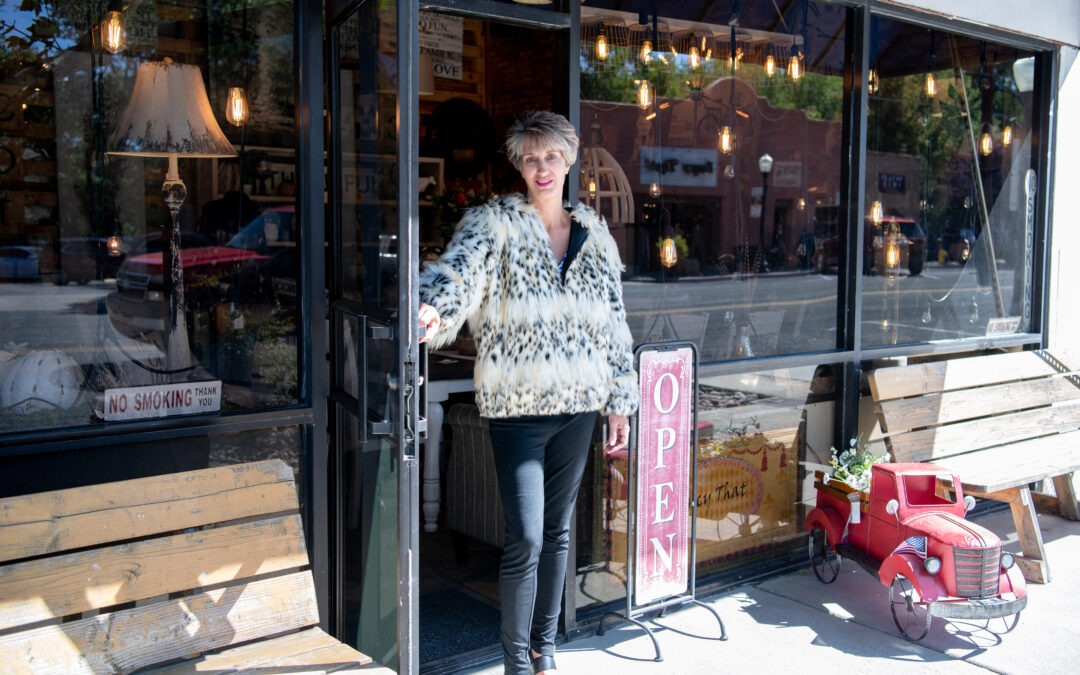When we stopped by to interview Deanna Webb at Country Bank in downtown Prescott, she was excitedly preparing to teach a Banzai financial literacy class to the Prescott High School 9th graders. Country Bank helps sponsor the Banzai online financial literacy program so local students can get free access to its user-friendly software along with in-person financial workshops.
“I think I have a teacher’s heart at my core,” says Webb, the Prescott Market Manager for Country Bank.
She talks to students about the three C’s of credit – character, capacity and collateral – and how they apply to the real world.
For example, FICA scores that help determine a customer’s loan interest rates.
Many consumers are unaware on how the FICA scores are built on factors that determine character.
One factor is the stability of a person’s job and home. If someone moves jobs or personal residences frequently; then their stability score decreases and it could potentially have a negative impact on their FICA scores.
Another factor built in the FICA score is capacity. What demonstrates capacity is the carrying of consistent credit card balances.
The higher the balance that remains outstanding in relation to one’s overall credit limit; could reduce capacity. This could potentially have a negative impact on a person’s FICA score.
Any given week may find Webb attending a Prescott Area Leadership board meeting so she can help others learn effective leadership skills, teaching Situational Leadership and Servant Leadership to local church leaders, or coordinating with the Prescott Valley Economic Development Foundation to help draw new business and help existing businesses grow.
“You have to work with non-profits that support your vision,” Webb says. Last year alone, Country Bank supported 45 non-profits one way or another.
“When our community is doing well, we do well,” Webb explains. “We look at what matters to the people in the quad cities, and what the bank can do to improve the quality of life.”
Local residents can do their part, especially during the holiday season, by shopping local, Webb adds. Researchers have found that every $100 spent at locally owned businesses contributes an additional $58 to the local economy. By comparison, $100 spent at a nationally owned business yields $33 to the local economy. The same multiplier effect applies to banks; when people make deposits at local banks, those local banks have more money to lend to local businesses.
A certified facilitator for leadership training with two decades of management experience, Webb thrives on sharing her expertise with everyone including her employees and bank clients.
“This is what keeps me coming to work every day,” Webb says. Phrases such as “I will” versus “I’ll try” matter, and she proves it by asking someone to hold their arm straight out from their side while letting someone else try to push down their arm. When thinking and saying “I’ll try,” it’s harder to keep your arm straight out than when you’re thinking “I will.”
There’s no doubt that Webb embodies the “I will” attitude.

